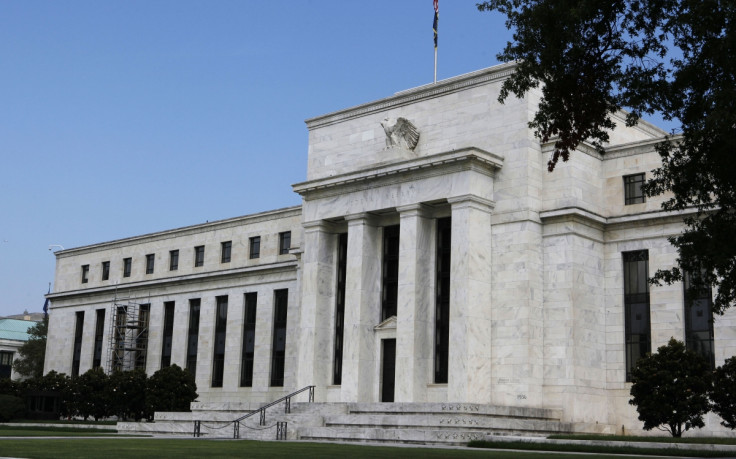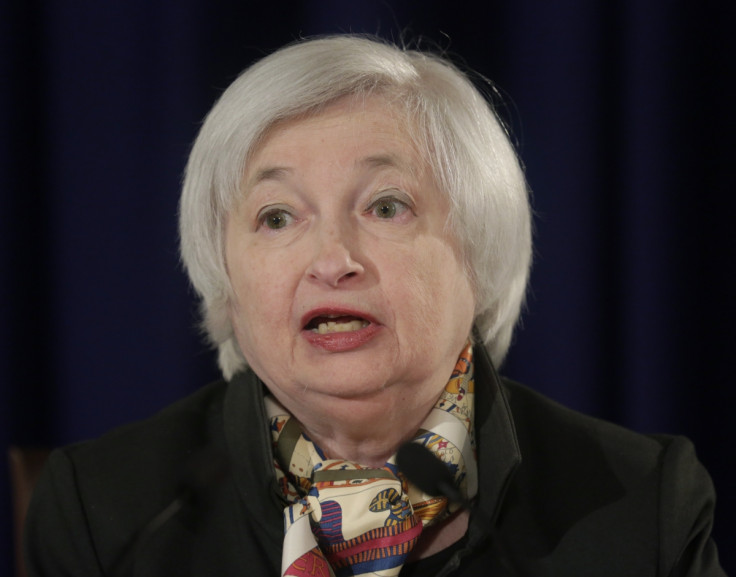Fed rate decision: All you need to know about the most anticipated financial choice of the year

Already branded the most important, and possibly most difficult, financial choice of the year, the decision by the Federal Open Market Committee on whether to increase the US interest rate or not on 17 September is much anticipated.
Over the past few days, markets have been obsessed with the Fed, with "will they, won't they" speculation dominating financial news and analysis. But why is the decision so anticipated and what would the impact of a rate increase in September mean? It is important to note that if the Federal Reserve decides not to raise the rate, it only has one chance left in 2015 to consider doing so, with its December meeting.
Who is Janet Yellen, chair of the Fed?

The Federal Reserve chair, who took over from Ben Bernanke in February 2014, had been vice chair since 2010. The 69-year-old New Yorker is a Democrat with degrees from Brown University and Yale University.
She has worked as an academic at several leading institutions such as Harvard and the University of California, but has an even more prominent portfolio as a policymaker. She chaired Bill Clinton's Council of Economic Advisers and used to be the vice chair of the American Economic Association.
She is seen as relatively dovish, although that might have more to do with the timing of her appointment and the slow global recovery from the devastating financial crash in 2008.
In the UK, economic growth has been slow in the third quarter but the Bank of England's policymakers have more meetings to decide on what they are going to do with interest rates.
Sylvia Sheng and Xiaojia Zhi, economists at Bank of America Merrill Lynch said: "As we head into a Fed hiking cycle, there is growing concern about renewed volatility in emerging economies' financial markets.
"Specifically on China, investors could be worried about the impact of the Fed rate hike given its weak growth momentum, intensified capital outflows, fuelled by currency depreciation fears, and the recent stock market turmoil."
As the second day of the FOMC meeting kicks off, investors are only focused on the decision and the impact it would have. Before the stock market crash in China, there was a market expectation of a small rise in interest rates but as global economies – and emerging markets especially – are struggling, the choice by the Fed has been complicated.
Economists agreed the Fed would look at international problems rather than just the economic situation in the US, which is a lot better than the majority of overseas economies. However, the weak inflation rate – a 0.1% month-on-month decline in August – made a Fed rate increase more likely, which, in turn, sent markets soaring.
The rate has been at between 0% and 0.25% since 2008 and has not been increased since 2006. The consensus was largely that the time is here for a slight increase, but it turns out most investors want the rate to stay below 0.25%. This came as the Bank for International Settlements, a leading financial institute, said that amid global financial turmoil, emerging markets such as China, are extremely vulnerable to an interest rate rise.
China's financial situation is a serious global concern, the BIS said, as analysts now expect an annual economic growth of less than 7%, for the first time since 1992.
The strong dollar has further weighed down emerging markets, as they have to deal with "the burden of dollar-denominated debt" and, although the increased fall in oil price is partially caused by the stock market crash in China, which caused concerns of falling demand, it adds to the volatility as well.
A higher-than-expected rise in revised second-quarter gross domestic product sent US markets soaring on 27 August. It was then announced the US economy grew by 3.7%, an upward revision from the first estimate of 2.3% and 0.5 percentage points higher than market expectations of 3.2%.
Buoyed by the news, the Dow Jones Industrial average jumped by 1.13% while the Nasdaq gained 1.36%, escaping correction territory after a torrid week linked to a stock market crash and slowing growth in China. The S&P 500 index rose by 25 points.
The more upbeat reading of quarterly GDP could be attributed to an increase in construction activity and an increase in business investment, which was up by 3.2% against an estimated fall of 0.6%.
In July, Fed chair Janet Yellen said 2015 would be a good year for an increase. During a speech she said: "I expect it will be appropriate at some point later this year to take the first step to raise the federal funds rate and thus begin normalising monetary policy."
However, she added: "But I want to emphasise that the course of the economy and inflation remains highly uncertain... We will be watching carefully to see if there is continued improvement in labour market conditions, and we will need to be reasonably confident that inflation will move back to 2% in the next few years."
A Bloomberg survey among 113 leading economists showed the scale was tipping towards keeping the rate at record lows, with 59 surveyed saying they would advise against any change. Meanwhile, 51 were in favour of an increase to 0.5% and the remaining three said they want the rate to be edged up by 0.125 percentage points to 0-0.275%.
The decision by the FOMC (which will be announced at 7pm BST) could either be historic or much ado about nothing. Although many seem to think it would be too early for an interest rate rise, others are saying the financial problems are more futile and are telling Yellen to increase them. Either way, the decision will be closely watched, not just by US companies and investors, but institutions and individual worldwide.
© Copyright IBTimes 2025. All rights reserved.






















